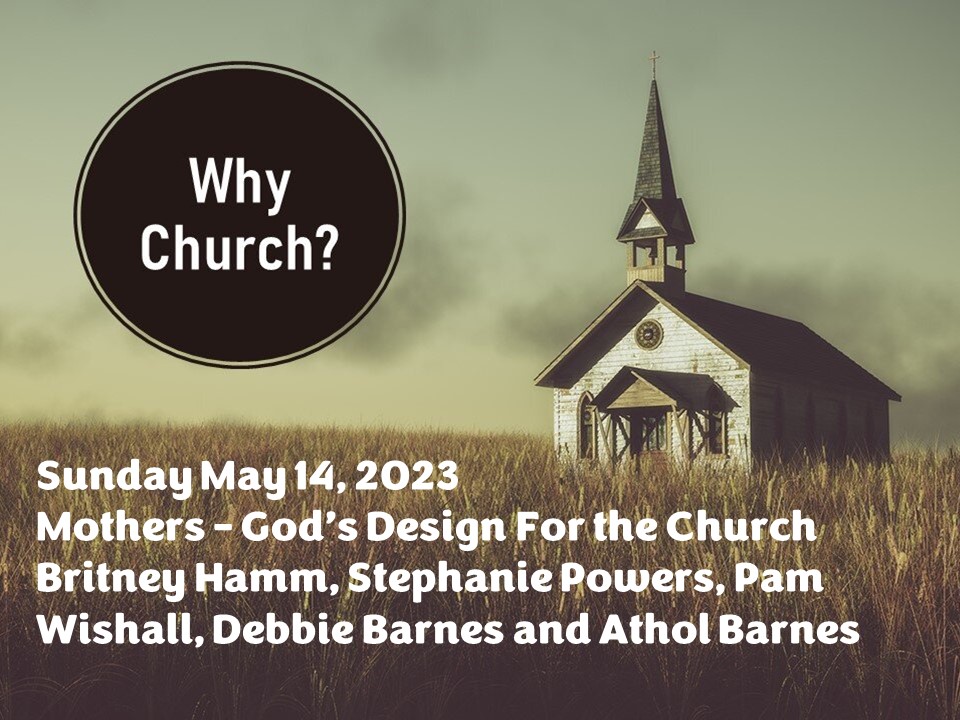
Mary, the mother of Jesus, was a woman of integrity and prayer. God chose her to be the one who would carry the Messiah. But there is an unusual encounter in Matthew 12 that causes us to pause and question the way we view mothers in the church (see Matthew 12:46-50).
This was a challenging time in the ministry of Jesus. In reading through Matthew 12, we read that the pharisees frequently challenged him and tried to trip him up. He was being put under pressure and probably being fully man, he was tired of the false accusations and possibly stressed. In verse 47 we read that a man came to let him know that his mother and brothers were outside and looking for him. He responded with an abrupt answer that seemed to indicate he was a little frustrated, “who is my mother and who are my brothers?”
We know little about the relationship that Jesus had with his family, however we do know Mary was with him all the way to the cross. Mary knew that Jesus was her son, but she also remembered the promise of the angels and the miraculous conception.
To Jesus, Mary was his mother, but also a person he came to save, and he knew his purpose was significantly bigger than his family. Jesus is not making light of natural family, but he was emphasizing the greater importance of spiritual family.
Our commitment to the Body of Christ and to the call of God on our lives must have a higher loyalty than to our own family. I understand our first mission field is our homes, but when God calls, sometimes family is left behind (see Luke 9:57-62).
Two weeks ago, we saw the apostle John in Revelation 19, where he begins to worship the angel. The angel rebukes him and says, “I am a fellow servant with you and your brothers…” Rev 19:10. Who are John’s brothers? Who are our brothers and sisters?
The Greek word “Adelphoi” is a plural and can mean blood brothers and sisters. What is being conveyed here by the original language is that our fellow believers around the world are closer than blood relatives. We are united together by the spirit of God and washed by the blood of Jesus, we are closer than natural family. That is the body of Christ.
The church needs spiritual mothers who can love and raise up the next generation. The way the church is designed by God is to be nurturing and caring. There is no shortage of pain and hurt in this world and many women in the church through their life experiences are uniquely positioned to be a mother to someone else.
But spiritual mothers are not to rebuke and correct at every opportunity. We know that people don’t need more correction or telling them what they are doing wrong. What the world does not need is more people giving worldly advice.
The primary role of spiritual mothers is to pray for younger women and young families. And when a word of counsel is needed, or invited, then by all means, step in with the wisdom of the Holy Spirit.
Paul writing to Titus in chapter 2:3-4 writes to older women, perhaps widows, he says, “Older women likewise are to be reverent in behavior, not slanderers or slaves to much wine. They are to teach what is good,and so train the young women to love their husbands and children,”
Before we get too distracted about not being slaves to much wine, in order to contextualize this for our generation, it is basically any addiction that removes your ability to be an effective counsellor. To have a temperate and self-controlled life that understands the importance of training up the next generation and not wasting time with distractions such as social media, mindless entertainment, and the like.
What if the Lord would lay a young person on your heart, and you would simply begin to pray for them. Maybe a young married couple, just starting out, maybe their parents are out of town or even absent. It doesn’t matter what if the Lord would simply have you come alongside them and pray for them, encourage them and make yourself available.
Debbie and I have navigated the past twenty-three years away from our parents, and I can list a long line of spiritual parents who adopted us. They may not think they adopted us, but their love and actions were exactly what we needed as immigrants and as young parents navigating the challenges of adoption, ministry, immigration, financial stress, sickness and life in general.
Just this past week we visited Tom and Joyce Lyle in Oklahoma, and this is a couple who have adopted many children throughout their lives. Not adoption through the courts, but through love and action.
How different would the church be if we would actually be the family that Jesus calls us to be. We would be irresistible to the world, they would long to be a part of a family that lavishes love on the next generations and disciples them in the ways of the Lord.
Who is the Lord calling you to be a spiritual mother to today.




